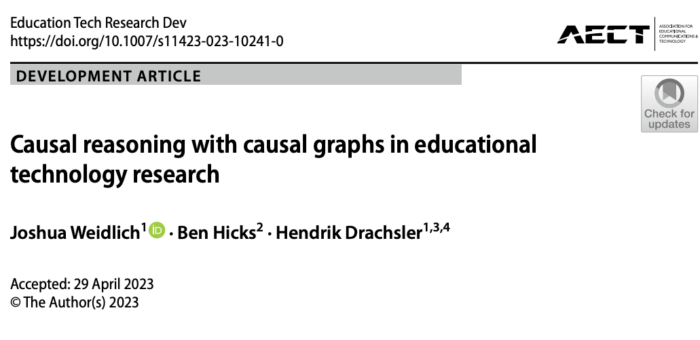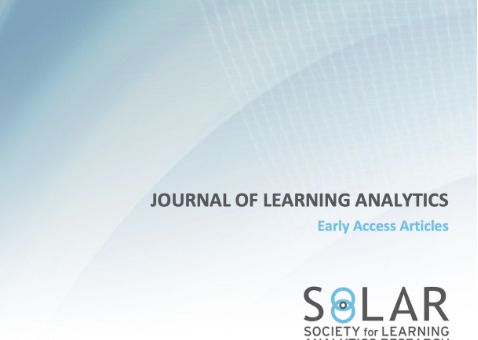
New pub: Causal reasoning with causal graphs, published in ETRD
Educational Technology, like many other empirical research fields, needs to provide evidence for the causal effectiveness of their interventions. This is as important for establishing the efficacy of some novel educational technology as it is for theory-building. However, because educational research, especially field research, can be messy, tightly-controlled randomized experiments are not always the best option. Importantly, as our development paper shows, this does not mean that researchers should abandon all claims of causality. Instead, we highlight the importance of explicit causal reasoning, while equipping researchers with a tool to approach this daunting task systematically. Causal graphs (or Directed Acyclic Graphs = DAGs) are a low-barrier approach to reasoning about causality in all research contexts. Using a few construction rules, the resultant graphs allow researchers to figure out whether a…

